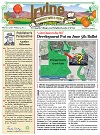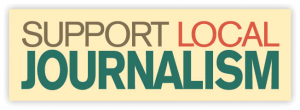The luckiest Americans are insulated from many everyday worries, like struggling to pay the rent or mortgage on time, and they enjoy luxuries such as fine dining and first-class travel. But, just as money is no guarantee of happiness, neither does it assure protection against all of the frightening impacts of unchecked global warming.
2016 was the third straight year that the Earth’s temperature was the hottest on record. The United Nations and scientific organizations worldwide warn that effects of climate change are already being felt and that the Earth is more than half the way to a temperature increase of 2 degrees Celsius, beyond which runaway global warming will produce irreversible, catastrophic effects. If global greenhouse gas emissions remain on their current trajectory, children living today can expect to experience the fallouts of a temperature increase topping 4 degrees Celsius by end of this century.
Many Americans Believe Climate Change Is Not a Threat
Despite such dire predictions, Americans, rich and poor, overwhelmingly believe climate change is not a threat to them, personally. The difficulty Americans have in understanding their own vulnerability to climate change stems in part from failing to see beyond the direct effects of climate change – heatwaves, droughts, storms and floods – to appreciate all the indirect effects that also threaten their health and safety. And it’s the indirect effects that ultimately place everyone at risk. For example, air pollution alone caused an estimated 5.5 million premature deaths worldwide in 2013.
Future Effects of Climate Change
One alarming effect of a warming planet will be to foster the spread of infectious diseases. Altered ecosystems will encourage the breeding of vectors like mosquitoes responsible for outbreaks of vector-borne diseases (e.g., Zika, dengue, chikungunya). The incidence of both food-borne (E. coli, Campylobacter, Salmonella) and water-borne-infections (cholera, giardia) should increase because warmer temperatures promote growth of bacteria and microscopic parasites.
Outbreaks of influenza will increase as people spend more time in close proximity indoors to avoid the weather. Exposure to zoonotic diseases carried by wild and domesticated animals (leptospirosis) might also increase from animal migrations or crowded living conditions. Moreover, in an increasingly interconnected world, there is the risk of spreading newly emergent diseases for which there is yet no cure. The recent scares over the Ebola and Zika viruses are sobering reminders.
By mid-century, world population is expected to approach 10 billion, and climate change will make meeting the resulting increased demand for food and water much harder. Harvest yields are compromised by not only freezes, floods and droughts, but also by simple heat. A recent study of the effects of global warming on staple U.S. crops found that yields of maize, soybeans and wheat all suffer when everyday temperatures exceed 30°C (86°F). Scarcity and price hikes of staples could become commonplace, even here in the United States.
Current Effects of Climate Change
Much has been written about the role of food and water insecurity as sparking human migrations, civil unrest, international conflicts and spread of terrorism in the 21st century. Syria is a prime example of how climate change intensified the worst drought in the nation’s history (2007-2010). The consequent food and water shortages fostered eruption of the ongoing civil war and spread of radical groups like ISIS and Al Qaeda.
Take Action
Even if we remain unconvinced that climate change could negatively impact our own health and safety, it is incumbent upon us to leave future generations a livable world. All that’s required is the political will in Congress to move from an economy based on burning fossil fuels to one based on clean, renewable energy sources.
The most effective thing you can do is to act locally by asking the Irvine City Council to include a Climate Change Action Plan that is integrated with the City’s General Plan and complies with State goals. Also, please take our Renewable Energy Poll.
- Home & Business Owners Alert: Property is Not Insured Against Radiological Accidents at San Onofre - June 15, 2024
- Rethinking Quality of Life in the Era of Climate Crisis - March 26, 2023
- The Insanity of Expanding Nuclear Energy - May 6, 2022




